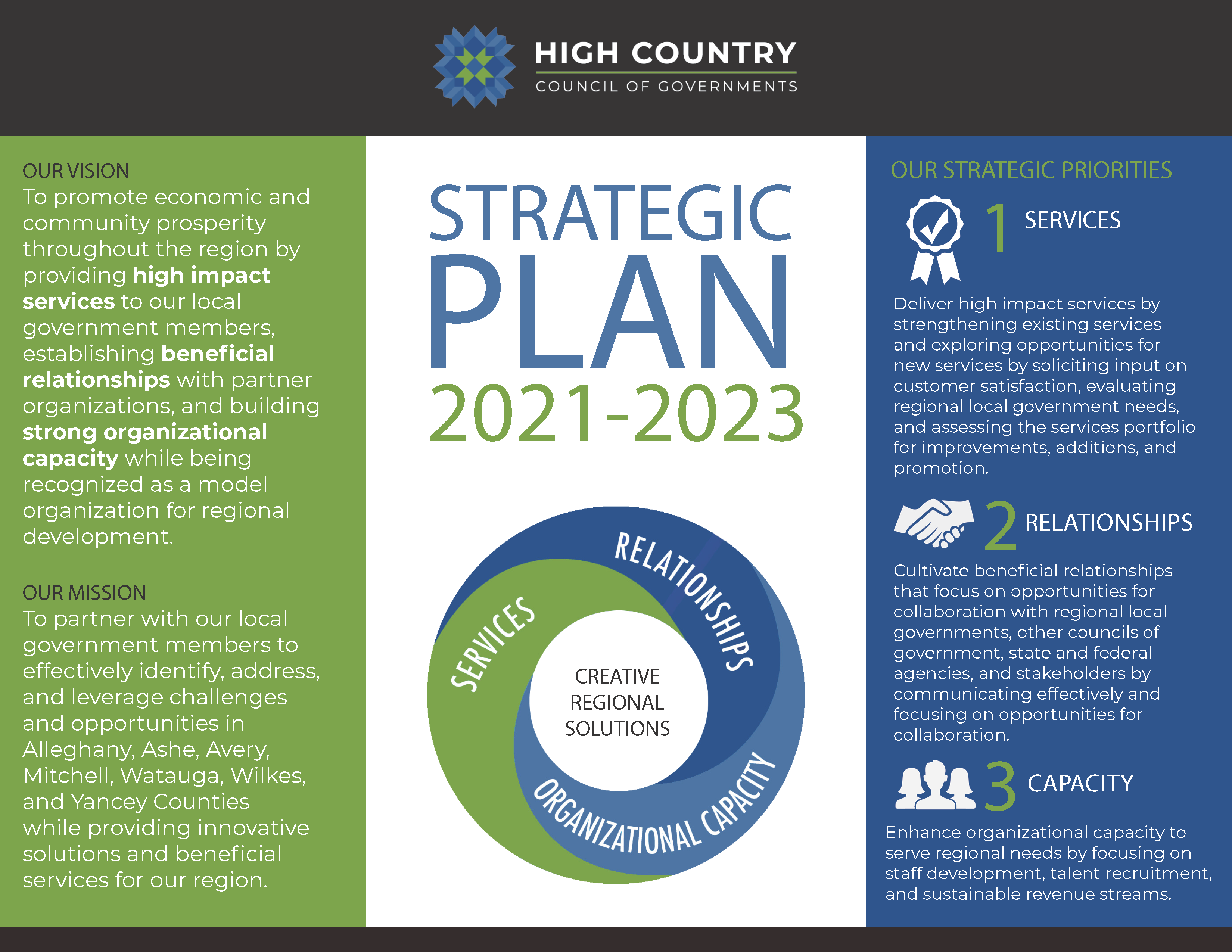

To promote economic and community prosperity throughout the region by providing high impact services to our local government members, establishing beneficial relationships with partner organizations, and building strong organizational capacity while being recognized as a model organization for regional development.
